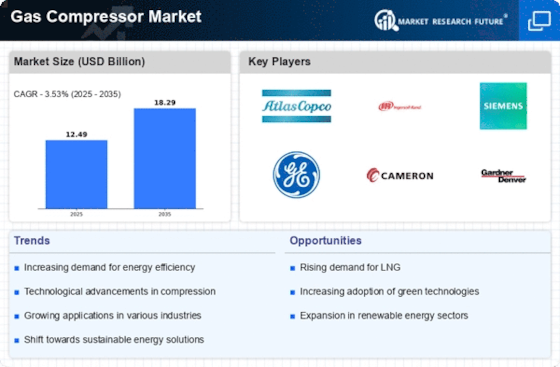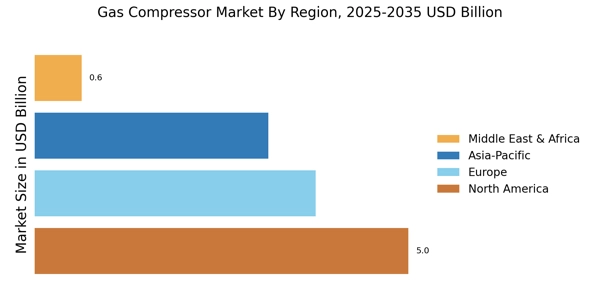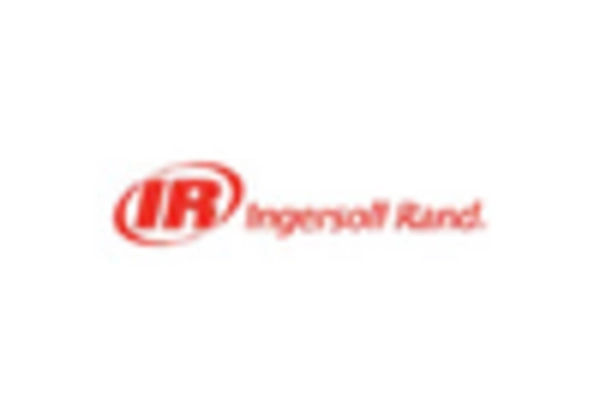Technological Innovations
Technological innovations are reshaping the Gas Compressor Market, as advancements in compressor design and efficiency are becoming more pronounced. The integration of smart technologies, such as IoT and AI, is enhancing the operational capabilities of gas compressors. These innovations not only improve performance but also reduce maintenance costs and downtime. Market data suggests that the adoption of advanced compressor technologies could lead to efficiency improvements of up to 20%. As companies strive to remain competitive, the Gas Compressor Market is likely to see increased investment in research and development, fostering a cycle of continuous improvement and innovation.
Infrastructure Development
Infrastructure development, particularly in emerging economies, plays a crucial role in the Gas Compressor Market. As nations invest in energy infrastructure, including pipelines and storage facilities, the demand for gas compressors is expected to rise. For instance, the construction of new gas pipelines necessitates robust compression systems to ensure the efficient flow of gas. Reports indicate that investments in energy infrastructure could reach trillions of dollars over the next decade, significantly impacting the Gas Compressor Market. This trend suggests that companies involved in gas compression technology may find lucrative opportunities as they align their offerings with the evolving infrastructure landscape.
Rising Demand for Natural Gas
The increasing demand for natural gas as a cleaner alternative to coal and oil is a primary driver in the Gas Compressor Market. As countries strive to reduce carbon emissions, natural gas is often viewed as a transitional fuel. This shift is evident in various regions, where natural gas consumption has surged, leading to a projected growth rate of approximately 4% annually in the coming years. Consequently, the need for efficient gas compression solutions has become paramount, as they facilitate the transportation and storage of natural gas. The Gas Compressor Market is thus experiencing heightened activity, with manufacturers focusing on developing advanced compressors that enhance efficiency and reduce operational costs.
Growing Industrial Applications
The expansion of industrial applications for gas compressors is a significant driver in the Gas Compressor Market. Industries such as petrochemicals, pharmaceuticals, and food processing are increasingly relying on gas compression technologies for various processes. The demand for compressed gases in these sectors is projected to grow, driven by the need for efficient production methods and stringent quality standards. For instance, the petrochemical industry alone is expected to account for a substantial share of the gas compressor market, as it utilizes compressors for gas processing and transportation. This trend indicates a robust future for the Gas Compressor Market, as diverse sectors continue to seek reliable and efficient gas compression solutions.
Regulatory Support for Clean Energy
Regulatory frameworks promoting clean energy initiatives are increasingly influencing the Gas Compressor Market. Governments worldwide are implementing policies that encourage the use of natural gas, which often requires advanced compression technologies. For example, incentives for natural gas usage in transportation and power generation are becoming more common. This regulatory support is likely to drive investments in gas compression technologies, as companies seek to comply with new standards and capitalize on emerging opportunities. The Gas Compressor Market may thus witness a shift towards more innovative and environmentally friendly compressor solutions, aligning with global sustainability goals.

















